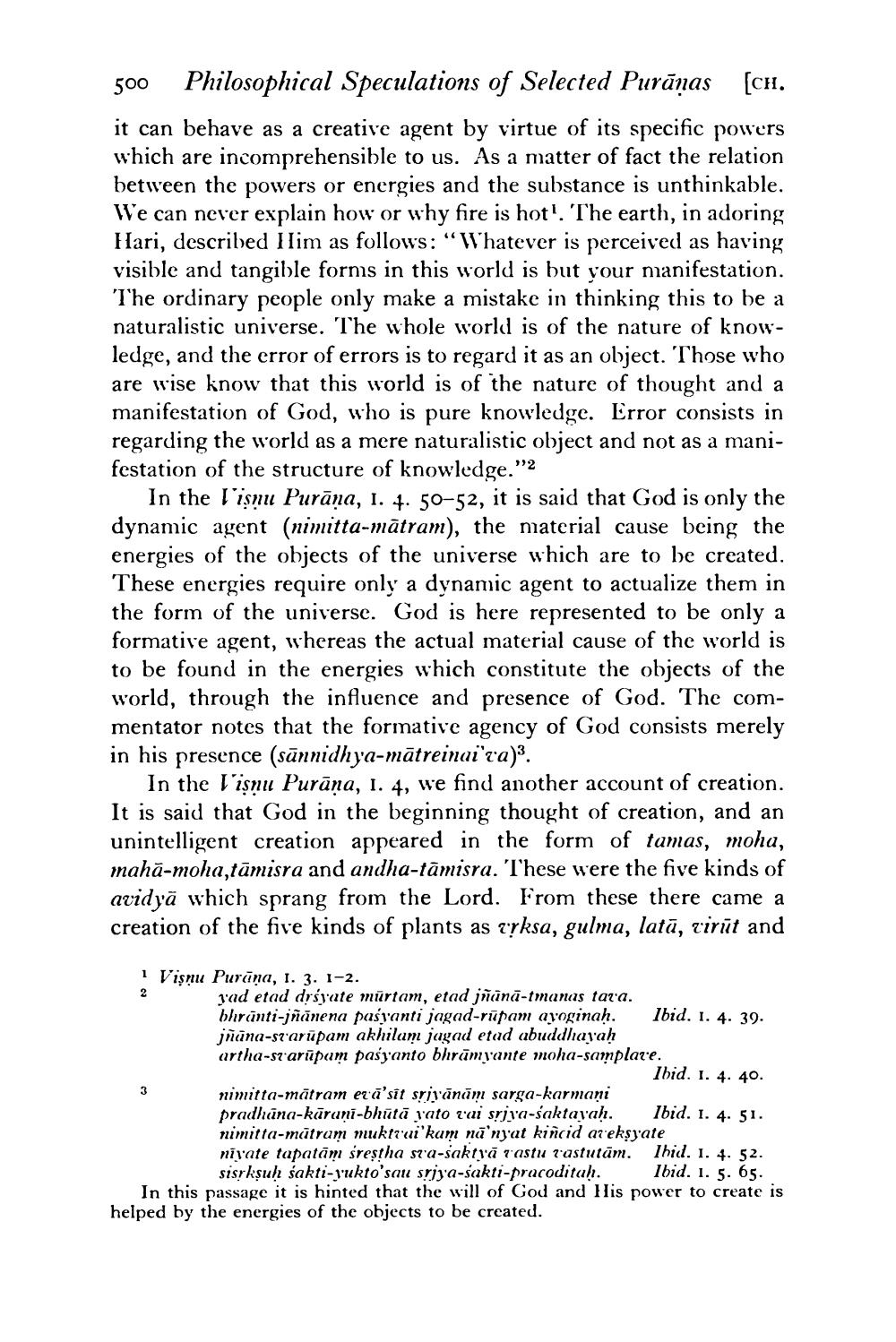________________
500 Philosophical Speculations of Selected Purāṇas (CH. it can behave as a creative agent by virtue of its specific powers which are incomprehensible to us. As a matter of fact the relation between the powers or energies and the substance is unthinkable. We can never explain how or why fire is hot'. The earth, in adoring Hari, described Him as follows:“Whatever is perceived as having visible and tangible forms in this world is but your manifestation. The ordinary people only make a mistake in thinking this to be a naturalistic universe. The whole world is of the nature of knowledge, and the error of errors is to regard it as an object. Those who are wise know that this world is of the nature of thought and a manifestation of God, who is pure knowledge. Error consists in regarding the world as a mere naturalistic object and not as a manifestation of the structure of knowledge."2
In the l'isnu Purāņa, I. 4. 50-52, it is said that God is only the dynamic agent (nimitta-mātram), the material cause being the energies of the objects of the universe which are to be created. These energies require only a dynamic agent to actualize them in the form of the universe. God is here represented to be only a formative agent, whereas the actual material cause of the world is to be found in the energies which constitute the objects of the world, through the influence and presence of God. The commentator notes that the formative agency of God consists merely in his presence (sānnidhya-mātreinai'ra)3.
In the l'isnu Purāņa, I. 4, we find another account of creation. It is said that God in the beginning thought of creation, and an unintelligent creation appeared in the form of tamas, moha, mahā-moha,tāmisra and andha-tāmisra. These were the five kinds of avidyā which sprang from the Lord. From these there came a creation of the five kinds of plants as vyksa, gulma, latā, virut and
i Vişnu Purūna, 1. 3. 1-2.
pad etad drsyate murtam, etad jñānā-tmanus tara. bhrānti-jñanena pasyanti jagad-rūpam avoginah. Ibid. 1. 4. 39. jñüna-st'arūpam akhilam jagad etud abuddhayah artha-starūpam pasyanto bhramyante moha-samplace.
Ibid. 1. 4. 40. nimitta-matram etā'sit srivānām sarga-karmani pradhana-kāruni-bhūtā vato tai sriva-saktavah. Ibid. 1. 4. 51. nimitta-matram muktai kam nā'nyat kincid awekşyate nivate tapatām sreștha sta-sakt tā rastu rastutām. Thid. 1. 4. 52.
sisrksuh sakti-jukto'sau sriya-sakti-pracoditah. Ibid. 1. 5. 65. In this passage it is hinted that the will of God and His power to create is helped by the energies of the objects to be created.




